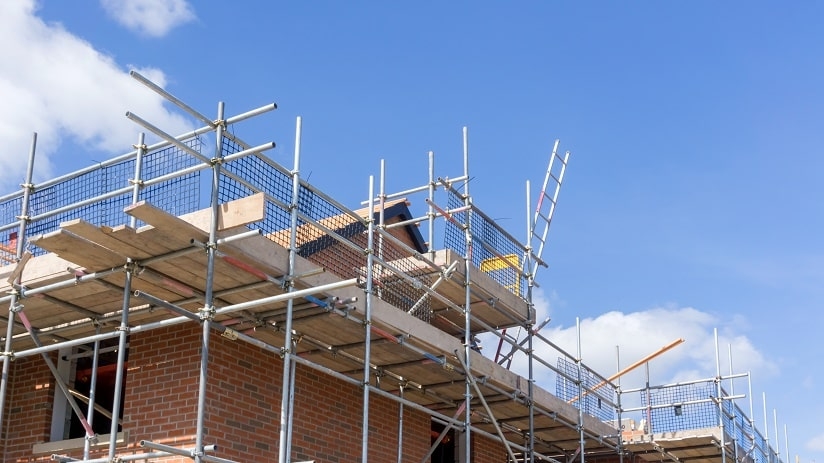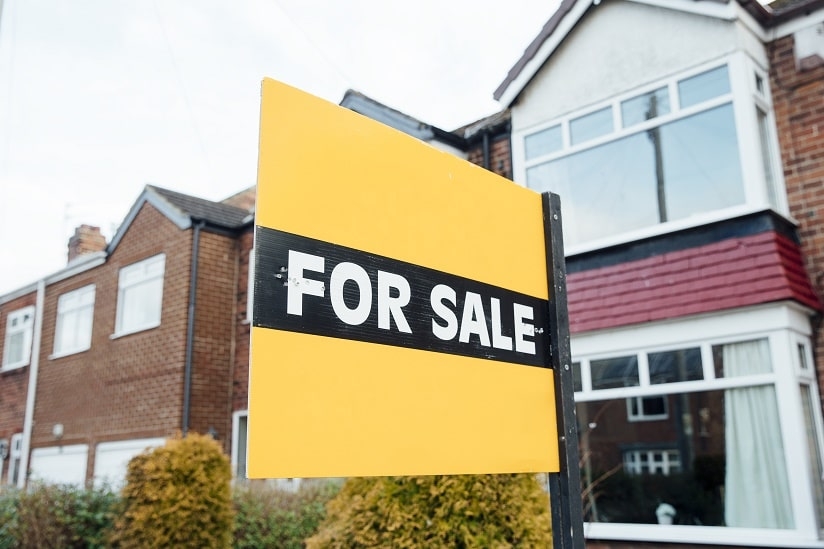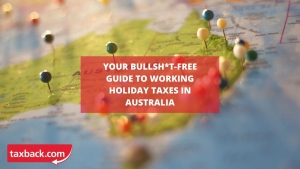Ireland's Housing Problem and 5 Things the Government Could Improve
'Doom' and 'gloom'.
Two words often used in conversations regarding Ireland's housing crisis.
And it's easy to see why.
Rent and house prices are approaching record highs and homelessness continues to rise.
As 2017 came to a close the average rent across the country was €1,227. And in Dublin tenants were paying an average of €380 a month more than the previous peak in 2008, during the Celtic Tiger.
Meanwhile, property prices have risen nationwide by an average of 54 per cent (just over €89,000) in the last five years. And the average house price in the capital is now nearly €155,000 higher than it was in 2013.
The latest figures from the Department of Housing show just under 10,000 people accessed emergency accommodation in July.
What's more, experts have predicted that our housing issues could last another 10 years.
In recent weeks thousands have taken to the streets to protest.
It's clear that, as the Budget 2019 annoucement approaches, the housing crisis is at the forefront of the public's mind.
Results from the latest Taxback Taxpayer Sentiment Survey confirm this.
According to the survey (of 1,600 taxpayers nationwide), half the country believe the housing and homelessness emergency should be the top priority in Budget 2019.
In mid-September the government announced the creation of the Land Development Agency (LDA).
Backed by €1.25 billion, the LDA has a target of building 150,000 homes over the next 20 years.
However, there has been criticism from the opposition, saying that the initiative does not go far enough to solve the problem.
One thing everyone can agree on is that demand is eclipsing supply. The government, housing experts and economists have all said that what's needed is an increased supply of properties.
But can anything be done to fast-track the process - making it easier for builders to build, buyers to buy and renters to rent?
Here's 5 ideas the government could consider:
The average Irish tax refund is €1,880
1) Fill vacancies

"I do think there is a lot of land that isn't being made available for development quickly enough, and that is why we brought in the derelict sites levy," An Taoiseach Leo Varadkar, quoted recently in the Irish Times.
The Vacant Site Levy (VSL) was introduced with the intention of making use of idle and vacant land for housing or regeneration.
The tariff, first announced in Budget 2018, charges owners of vacant sites who do not develop their land in 2018 a three per cent levy in 2019. An increased rate of seven per cent kicks in from 1 January 2019.
Independents4Change TD Mick Wallace has previously suggested that he would like see the levy increased to 25 per cent of the market value.
Will the government consider increasing the charge to encourage owners of vacant sites to allow development on their land?
2) Reach for the sky
Consider the projection that there will be 400,000 more people living in Dublin by 2030 and 600,000 more by 2050.
How will the government handle this influx?
Perhaps they should consider casting their eyes skyward.
According to our survey, 63% of respondents would favour skyscrapers being built in Dublin in order to tackle to housing crisis.
Most of Dublin falls into a 'low-rise' building category. Current regulations fix a maximum number of floors at which a building can still be considered low-rise—a category for which it is much easier to get planning permission. The height limit of apartments in low-rise areas of Dublin's inner city is 24m. In the low rise areas of the suburbs, the restriction is set at 13m.
In March, An Bord Pleanala rejected a plan by Ronan Group Real Estate to build Dublin's tallest building next to Tara Street station.
The company intended to build a 22-storey (88m) tower comprising offices, a hotel and rooftop restaurant. For reference – Liberty Hall reaches 59m in height, Capital Dock is 79m tall and the Spire looks down on the city from 120m above. In refusing permission for the development, Dublin city planners said the proposed tower would have a "significant and detrimental visual impact" on the city's skyline.
Subsequently, the group has been given the all-clear to construct one of Dublin city centre's biggest apartment developments.
Leaving retail and business units to one side, should the government be doing more to encourage the building of high rise residential properties?
The idea of skyscrapers in Dublin is nothing new. The Progressive Democrats even canvassed the notion of a "Manhattan on the Liffey" plan for Docklands in 2007.
With Dublin's population expected to grow and grow, the high density housing that skyscrapers offer could be just the solution required.
The average Irish tax refund is €1,880
3) Close the loop

Rent Pressure Zone (RPZ) laws were first introduced in Ireland in December 2016 by then-Housing Minister Simon Coveney to tackle spiralling rents.
Under the legislation, annual rent rises were to be capped at four per cent in certain designated areas. Today, 21 local electoral areas in Ireland are included on the RPZ list, including Dublin and Cork.
However, one criticism directed at the RPZ laws is that there are too many loopholes in them that landlords can exploit in order to raise their rent charges by more than four per cent.
With demand vastly outweighing supply, it's easy to see why prospective renters may be reluctant to pressure a landlord to provide evidence that they have not increased the rent by more than four per cent.
Furthermore, under current laws, a landlord can evict a tenant and raise the rent above the limits if substantial refurbishment is carried out on the property. However, there is little to stop landlords using this clause to evict tenants, carry out minor refurbishments and then charge significantly higher rents to new tenants.
So what can be done?
Housing charity Threshold have suggested the introduction of a publicly searchable index of rents charged by landlords on a property-by-property basis.
Furthermore, earlier this year Housing Minister Eoghan Murphy proposed a new measure to make it a criminal offence for landlords with properties in RPZs to raise their rent above the legally allowed four per cent.
4) Extend a helping hand

When the government launched the Help to Buy (HTB) incentive in Budget 2017, one of its key goals was to assist first-time buyers in paying their deposit and taking a step closer to owning their first home.
The scheme enables first-time purchasers of newly built homes or self-builds to claim relief of income tax paid up to five per cent of the price of the property (maximum of €20,000).
According to the Central Statistics Office, the introduction of the HTB incentive has led to a 50 per cent increase in the number of such buyers getting on the property ladder. To date, over 7,500 HTB claims have been approved.
The incentive has previously been criticised for being counter-productive, driving up property costs for first-time buyers. However, a report by consultants Indecon found that 57 per cent of builders had not increased their prices as a result of the scheme.
77% of our survey respondents said that they would like to see the grant extended to people who were 'trading up' and who had not previously received a grant to fund a property purchase.
HTB is set to conclude at the end of 2019. The government originally budgeted €50 million per year over the three year term of the incentive. It would not be a surprise if an extension and enhancement of the scheme was on the table during budget discussions.
5) Stimulate to accumulate

Would reducing construction costs equate to more houses being built faster?
74% of our survey respondents said they would be in favour of the government cutting the building sector VAT rate in order to incentivise more homes being built quicker.
A number of experts also agree.
In the lead up to Budget 2018, the Society of Chartered Surveyors Ireland (SCSI) called on the government to reduce VAT in the building sector from 13.5 per cent to 0 per cent (provided the new units were delivered to the market within a specified timetable).
Fianna Fáil didn't quite go so far.
Instead the opposition party called for the tax to be reduced to nine per cent and it was estimated that this move would cost the government €240 million.
However, Minister for Finance Paschal Donohoe ruled out reducing VAT ahead of last year's budget announcement. But with pressure on the government to take measures to solve the housing crisis, might a reduction in VAT be back on the table for Budget 2019?
Only time will tell.
The average Irish tax refund is €1,880
Budget 2019 Taxback Taxpayer Sentiment Survey Results
Q: If you were Taoiseach, what would be your number 1 priority in Budget 2019?
| Housing & Homelessness | 50% |
| Healthcare | 24% |
| Cut income tax rates | 13% |
| Childcare costs | 5% |
| Poverty levels | 4% |
| Climate change | 2% |
| Tax assistance and incentives for self-employed | 1% |
| Other | 1% |
Q: Skyscrapers have been mooted as one potential solution to Dublin's housing crisis. Would you favour skyscrapers being built in Dublin?
| Yes | 63% |
| No | 37% |
Q: Do you think the Government should extend the First Time Buyer grant of €20,000 to those "trading up" who haven't previously received any grants to fund their property purchase?
| Yes | 77% |
| No | 23% |
Q: Do you think the Government should cut the VAT rate in the building sector to incentivise more homes to be built quicker?
| Yes | 74% |
| No | 26% |




